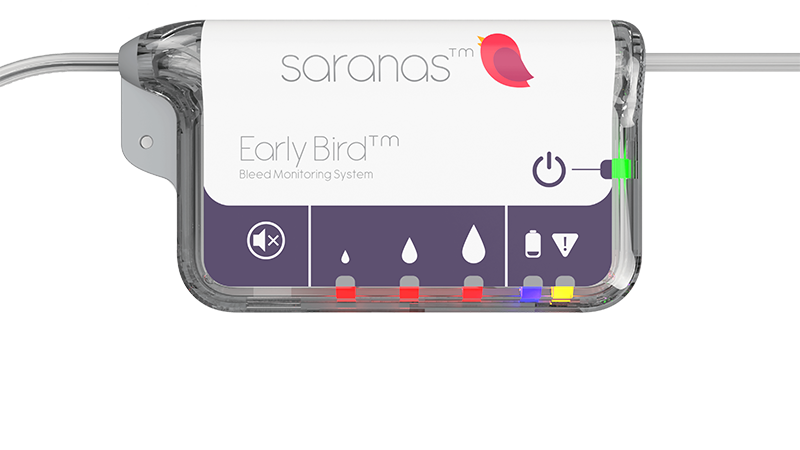Minimally invasive vascular procedures, although normally safer than open surgeries, have potential complications. A study of over 17,000 large-bore transcatheter interventions from the National Inpatient Sample Database found bleed complications in one out of five patients. One major complication is an internal bleeding or blood extravasation from a ruptured or dissected vessel, typically caused when working with large instruments and devices, and something that a physician may not even notice until the situation is already dire.
Read more HemaShock: Emergency Auto-Transfusion Tourniquet Can Save Lives from Heart Attacks and Bleeding
“Bleeding remains an Achilles’ heel of advancing minimally-invasive, catheter-based procedures,” said Dr. Dimitrios Karmpaliotis, Director of Chronic Total Occlusions, Complex and High-Risk Angioplasty at Columbia University Medical Center.
Saranas, a Houston, TX-based medical device company, received de novo classification by the U.S. Food and Drug Administration (FDA) for its Early Bird Bleed Monitoring System, says a press release.

“Gaining FDA approval for the Early Bird is a significant milestone for Saranas as it demonstrates our continued commitment to address an unmet need for real-time detection and monitoring of endovascular bleed complications,” said Saranas President and CEO Zaffer Syed. “As the first and only device on the market for early bleed detection, we have the potential to significantly reduce bleeding complications and related healthcare costs, while improving clinical outcomes in patients undergoing endovascular procedures.”
The device has a vascular access sheath with embedded bioimpedance sensors that are designed to detect and monitor bleeding from vessel injury which may occur during endovascular procedures, such as a transcatheter aortic valve replacement (TAVR), large bore hemodynamic support device placement, or other complex cardiovascular interventions, where the femoral artery or vein is used to obtain vascular access.
In an animal study to support FDA review of the device’s effectiveness, the Early Bird was able to detect internal bleeds with 100% sensitivity and 100% specificity.
Read more Navitian, iVascular´s New Coronary Microcatheter Receives CE Mark Approval
“I firmly believe the Early Bird Bleed Monitoring System will help protect, and in some cases, save the lives of patients undergoing an endovascular procedure by allowing physicians to detect the onset of bleeding early and take appropriate steps to address the bleed before detrimental, irreversible and life-threatening consequences occur,” said Dr. Philippe Généreux, Chief Medical Officer of Saranas.












